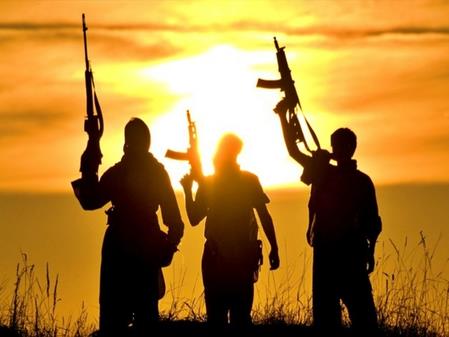
Smokescreen Or Strategy? Why ISI Is Unlikely To Shift Terror Bases To Khyber Pakhtunkhwa
Further, terrorists of the Jaish-e-Mohammad have openly spoken about how their chief, Masood Azhar's family was blown to pieces due the operation that India undertook to avenge the Pahalgam attack that claimed 26 innocent lives.
Amidst this there was also news that terror groups are shifting out of Bahawalpur and Murdike and setting up their camps and headquarters in Khyber Pakhtunkhwa (KP).
While, outfits such as the Lashkar-e-Taiba and Jaish-e-Mohammad have terror bases in Khyber Pakhtunkhwa, Indian Intelligence agencies, however, have doubts on this claim.
Officials say that given the current equation that Pakistan has with the Afghan Taliban, the ISI would not risk moving major operations of its top two terror outfits to Khyber Pakhtunkhwa. The Afghan Taliban would be breathing down their neck and to add to the misery of the ISI would be the Tehreek-e-Taliban Pakistan (TTP).
The TTP is very active in Pakistan's northwest province Khyber Pakhtunkhwa.
There are operations that are carried out on a regular basis by the Pakistan Army against the TTP and this has made the place extremely volatile. Hence the ISI may not take the gamble and shift the major bases of the two terror groups to KP.
This week, the security forces in Pakistan gunned down three terrorists including an Afghan national in KP. The three were said to be involved in a bombing in Peshawar which led to the death of a sub-inspector and constable.
Last week's raids by the Pakistan security forces in KP led to the death of 19 soldiers and 45 terrorists. Pakistan has repeatedly said that the TTP with the help of the Afghan Taliban carries out attacks on Pakistani soldiers.
Khyber Pakhtunkhwa's proximity to the Afghan border also makes the place a high risk zone.
The TTP has been accused of using the Afghan border to launch attacks against the Pakistan Army.
Taking all these aspects into mind, the ISI may not want the terrorists of the Lashkar-e-Taiba or the Jaish-e-Mohammad to be caught in a cross fire. Intelligence Bureau officials say that putting out news stating that operations are being moved to Khyber Pakhtunkhwa to escape from the radar of the Indian forces could be a smoke screen to divert attention.
Putting out such material gives the ISI the breathing space to create new infrastructure for the terror groups. Pakistan may not have expected in its wildest dreams that India could carry out an operation of such a scale. The precision strikes and the depth is what hit Pakistan the most and caused it major embarrassment.
Officials say that despite Operation Sindoor, Pakistan will not change its policy regarding terror. However, this time it does know that any terror attack will be treated as an act of war and India will hit harder.
In such an event, it would want to ensure that even if there is a hit, there is no major damage to terror infrastructure. Operation Sindoor was a huge setback for terror groups especially the Jaish-e-Mohammad and Lashkar-e-Taiba. There is panic among the ranks the ISI knows this.
Given the circumstances and taking into consideration, the might of the Indian armed forces and also the rising tensions with the Afghan Taliban, Khyber Pakhtunkhwa would not be the best option for the ISI to set up terror operations.
In the aftermath of Operation Sindoor, the ISI started to pull terror camps and related infrastructure from known places. It was decided that the main facilities such as the headquarters and the training camps will be set up close to army installations. This decision was taken keeping in mind, that in case of an operation by the Indian armed forces, the Pakistan Army would be able to protect the terror infrastructure.

Legal Disclaimer:
MENAFN provides the
information “as is” without warranty of any kind. We do not accept
any responsibility or liability for the accuracy, content, images,
videos, licenses, completeness, legality, or reliability of the information
contained in this article. If you have any complaints or copyright
issues related to this article, kindly contact the provider above.
Most popular stories
Market Research

- CEA Industries ($BNC) Announces BNB Holdings Of 480,000 Tokens, And Total Crypto And Cash Holdings Of $663 Million
- Whale.Io Launches Battlepass Season 3, Featuring $77,000 In Crypto Casino Rewards
- Kucoin Appeals FINTRAC Decision, Reaffirms Commitment To Compliance
- Daytrading Publishes New Study Showing 70% Of Viral Finance Tiktoks Are Misleading
- Bitmex Launches Uptober Carnival Featuring A $1,000,000 Prize Pool
- PU Prime Launches Halloween Giveaway: Iphones, Watches & Cash Await




















Comments
No comment